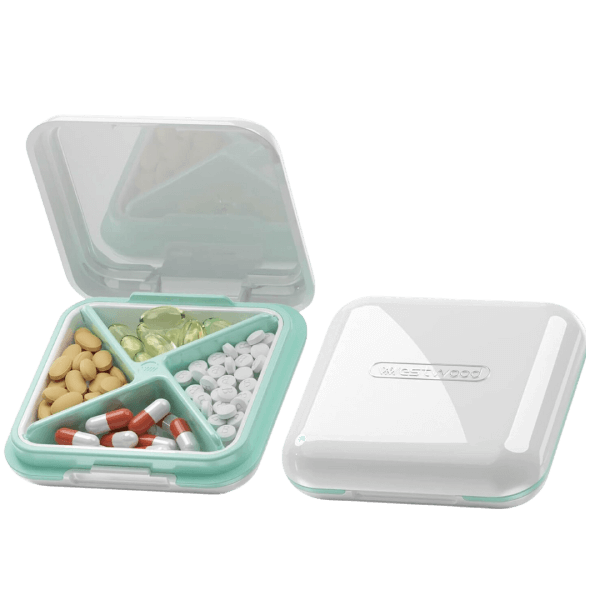What are stress tests or cardiac stress tests?
Cardiac stress tests are medical procedures that are used to evaluate the function and performance of the heart under stress. They are typically performed to help diagnose and evaluate heart disease, such as coronary artery disease, or to assess the effectiveness of treatments for these conditions.
Cardiac stress tests are generally safe and non-invasive, and they can provide valuable information about a patient’s heart health. However, they may not be suitable for all patients, and there are some risks associated with the procedure, such as the risk of a heart attack or other cardiovascular events in patients with underlying heart disease. Patients should always consult with their healthcare provider to determine if a cardiac stress test is appropriate for their individual situation.
What are the different types of stress tests?
There are several types of cardiac stress tests that may be used to evaluate the function of the heart.
Exercise stress testing
The exercise stress test is the most common type of stress test, where the patient is asked to exercise on a treadmill or stationary bike while their heart rate, blood pressure, and electrocardiogram (ECG) are monitored.
Pharmacologic stress test
In this test, a medication is given to simulate the effects of exercise on the heart. This is often used when a patient is unable to exercise due to medical reasons.
Stress echocardiogram
This test uses ultrasound imaging to evaluate the function of the heart before and after exercise or pharmacologic stress.
Nuclear stress test
In this test, a small amount of radioactive substance is injected into the patient’s bloodstream, which can help evaluate blood flow to the heart muscle before and after exercise or pharmacologic stress.
Cardiac MRI stress test
This test uses magnetic resonance imaging (MRI) to evaluate the function of the heart before and after exercise or pharmacologic stress.
The choice of the stress test will depend on the patient’s medical history, physical condition, and the information needed to evaluate their heart function.
Heart Disease and Stress Tests
A treadmill stress test is a medical diagnostic test that evaluates how well your heart responds to physical activity or exercise. During the test, you walk or run on a treadmill while a healthcare professional monitors your heart rate, blood pressure, and electrocardiogram (ECG) readings.
To perform the test, you’ll be asked to wear comfortable shoes and clothing suitable for exercise. Electrodes will be placed on your chest to monitor your heart’s activity, and a blood pressure cuff will be placed on your arm to measure your blood pressure. You’ll then start walking on the treadmill at a slow pace, which gradually increases in speed and incline. The healthcare professional will monitor your vital signs and ask you how you’re feeling throughout the test.
The treadmill test is performed to diagnose various heart-related conditions such as coronary artery disease, arrhythmia, and heart failure. The test can also help your doctor assess your fitness level, develop an exercise plan, or evaluate the effectiveness of a treatment plan.
The duration of the test varies depending on the purpose of the exercise test and the types of stress tests and the individual’s physical condition. Typically, the test lasts for 10-20 minutes, but it can last longer in some cases. After the test, you’ll be asked to rest for a few minutes while your heart rate and blood pressure return to normal. Your doctor will then review the results of the test with you and discuss any necessary follow-up steps.
Is Treadmill Stress Testing Right Right For You FAQs
How do I prepare for a treadmill stress test?
Do not eat anything in the few hours leading up to the test. You should avoid caffeine for 24 hours before the test and not use tobacco products. Try to relax and wear lightweight, comfortable clothes and tennis shoes.
Why might I need a stress test?
A cardiac stress test may be recommended by your healthcare provider if you are experiencing symptoms that may be related to heart disease, or if you are at increased risk of developing heart disease due to certain factors such as age, family history, or lifestyle habits.
Some common reasons why a healthcare provider may recommend a cardiac stress test include:
1. Chest pain or discomfort: If you are experiencing chest pain or discomfort, a cardiac stress test may be used to help determine if it is related to a heart condition such as coronary artery disease.
2. Shortness of breath: If you are experiencing shortness of breath, a cardiac stress test may be used to help determine if it is related to a heart condition such as heart failure or pulmonary hypertension.
3. Abnormal heart rhythm: If you have an irregular heartbeat or other abnormal heart rhythms, a cardiac stress test may be used to help evaluate the function of your heart.
4. Evaluation of treatment: If you have been diagnosed with heart disease and are undergoing treatment, a cardiac stress test may be used to evaluate the effectiveness of your treatment and monitor your progress.
5. Assessment of risk: If you are at increased risk of developing heart disease, a cardiac stress test may be used to assess your risk and help determine if you need further testing or treatment.
Overall, a cardiac stress test can provide valuable information about your heart health and help your healthcare provider make informed decisions about your care. However, it is important to discuss your individual situation with your healthcare provider to determine if a cardiac stress test is appropriate for you.
What is involved in a treadmill stress test?
A stress test usually involves walking on a treadmill or riding a stationary bike. A healthcare provider watches your heart rhythm, blood pressure, and breathing during the test. People who can’t exercise may be given a medicine that creates the effects of exercise.
How long should you stay on the treadmill for a cardiac stress test?
You will be asked to walk on a treadmill for approximately 5 to 15 minutes. The test begins slowly and increases gradually in speed. The treadmill inclines every two to three minutes. During this time, your heart rate, blood pressure, and EKG will be monitored.
Do you run during a stress test?
During your cardiac exercise stress test, you’ll walk on a treadmill or cycle on an exercise bike until you reach your “target heart rate”- which is 85% of the maximum heart rate predicted for your age. Every 3 minutes, the speed, incline, and resistance of your treadmill or bike will increase, up to 15 minutes maximum.
Can a treadmill stress test show blockage?
A cardiac stress test can reveal blockages in your arteries through the various types of information it collects. If your blood oxygen level is below normal, the test reveals that your blood flow is partially blocked.
What happens if you fail or have a positive treadmill stress test?
But what happens after you fail a stress test? Oftentimes, the next step for people who fail a stress test, and who have risk factors for or symptoms of cardiovascular disease, is an imaging test called coronary angiography. Your doctor may call it a cardiac catheterization, or “cath” for short. Cardiac Catheterization (also called cardiac cath or coronary angiogram) is an invasive imaging procedure that allows your doctor to evaluate your heart function, and apply stents to open up your coronary or heart vessels so that adequate blood flow resumes.
What makes you fail or have a positive stress test?
A positive test means the patient’s ECG is showing changes of angina (lack of adequate blood supply to the heart) after workload. It means the patient is suffering from ischemic heart disease. Reduced blood flow to a part of the heart. The most likely cause is a narrowing or blockage of one or more of the arteries that supply your heart muscle or scarring of the heart muscle due to a previous heart attack.
Do diabetics need a stress test?
Diabetes is a known risk factor for heart disease, and individuals with diabetes are at increased risk for developing cardiovascular disease. As a result, it is possible that your healthcare provider may recommend a cardiac stress test if you have diabetes, particularly if you are experiencing symptoms that may be related to heart disease or if you have other risk factors for heart disease.
The American Diabetes Association recommends that individuals with diabetes undergo regular cardiovascular screenings, including stress testing, to help identify and manage any potential heart disease risk factors. The frequency of these screenings will depend on a number of individual factors, such as your age, overall health, and specific risk factors.














